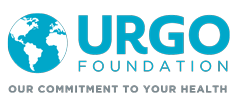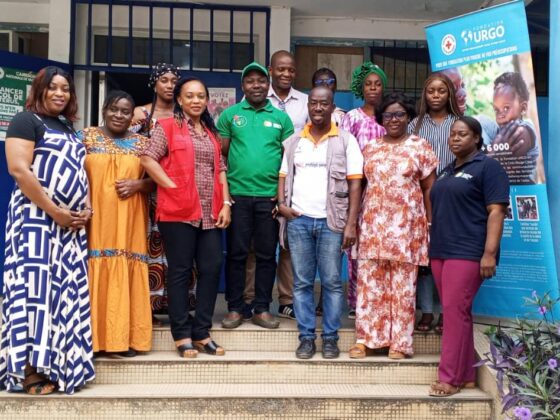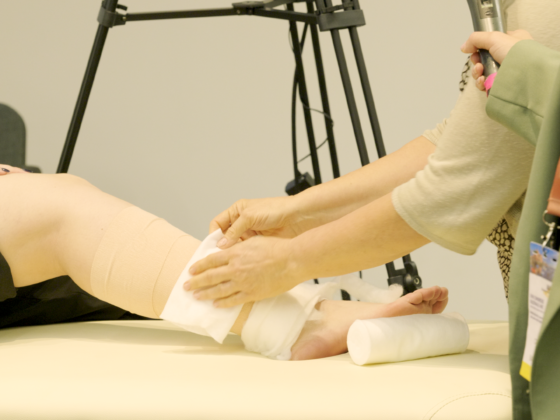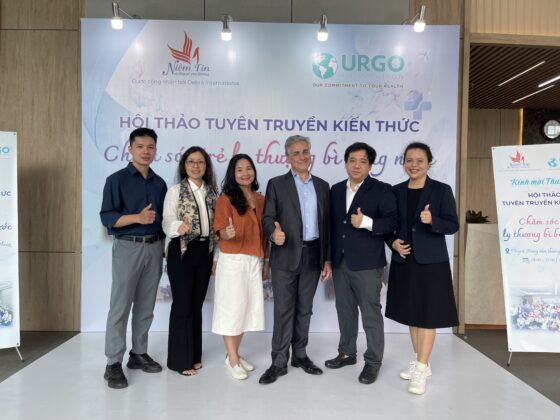After touring the Iberian Peninsula for several years, the URGO Foundation continued its mission to support Spanish nurses in developing their knowledge of leg ulcers, first in Valencia and then in Madrid.
In a country where the population aged 60 and over is estimated at 20.4%, leg ulcers, a chronic disease which primarily affects the elderly, are increasing every year. In this context, training healthcare professionals is essential to ensure early diagnosis and appropriate treatment.
A 360° approach
During a simulated consultation, experts Nuria, Paz and Rodrigo began by stressing the importance of asking questions (about medical history and living conditions) to complement the clinical examination. Understanding the causes and consequences of a pathology enables not only a correct diagnosis to be made, but also the right treatment to be put in place, adapted to the patient’s lifestyle and psychology.
They also emphasised the importance of explaining to patients how the proposed treatment works and its benefits to encourage compliance.
The presentation was punctuated by the participation of the 350 guests in defining the treatment, which was achieved through a series of questions put to the audience.
Consensus
The speakers then took a moment to review the aetiology of venous ulcers, the international recommendations for their diagnosis and management, and explain the benefits of compressive therapy as proven by clinical studies.
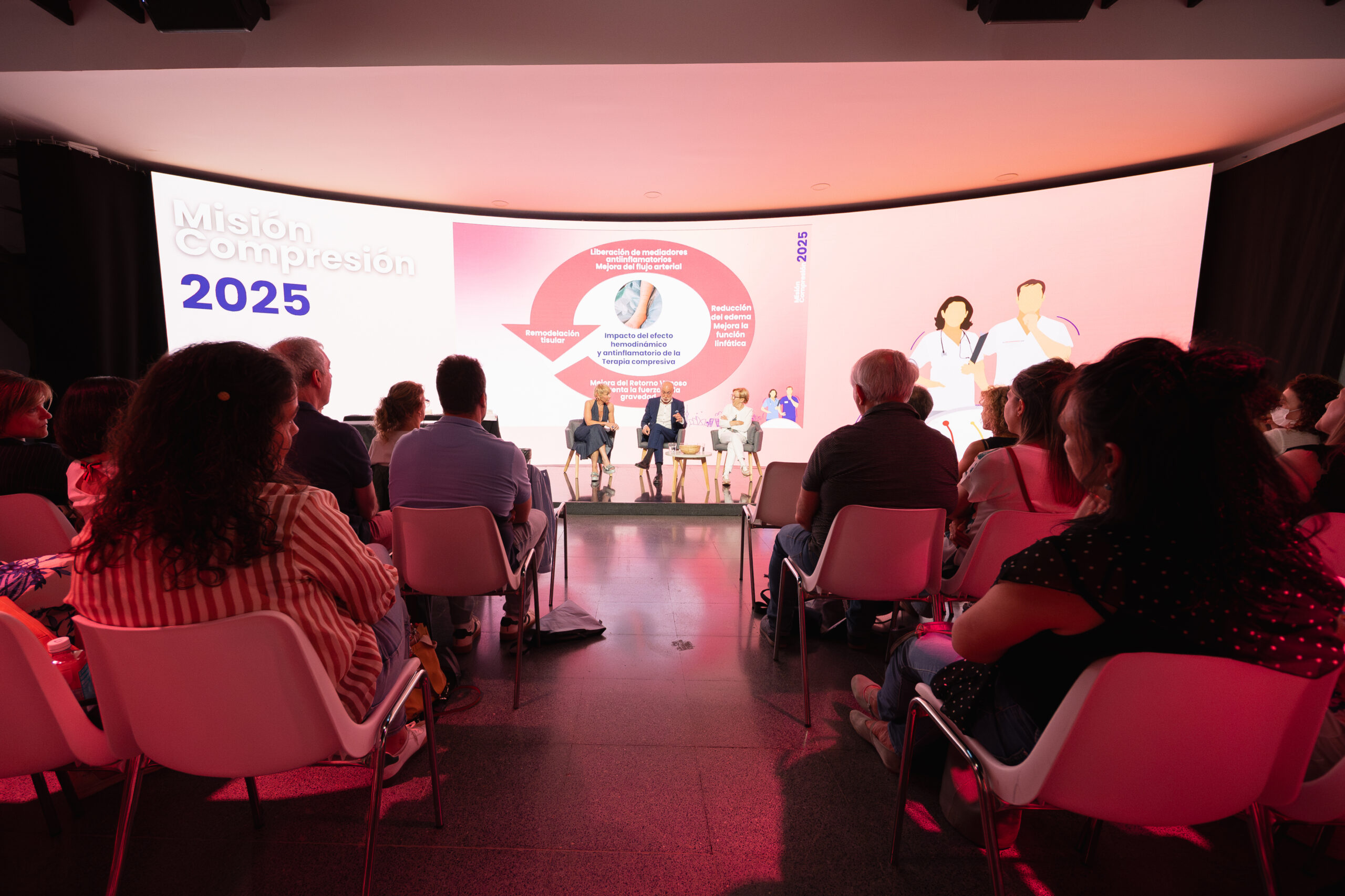
Clinical cases
Once the theory had been covered, each participant was given the opportunity to ask the experts questions about specific cases they had encountered in their own practice and to discuss how best to manage them together. These exchanges continued in a convivial atmosphere among healthcare professionals.
Informed and trained healthcare professionals can act as ambassadors of good practice and contribute to patient well-being. The Fondation URGO is proud to be part of this change.
